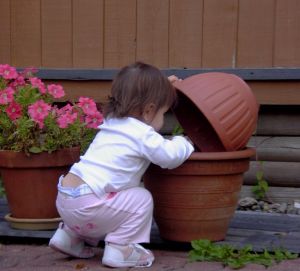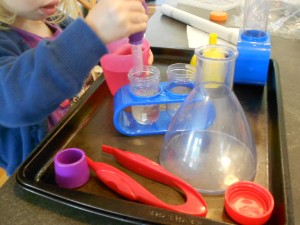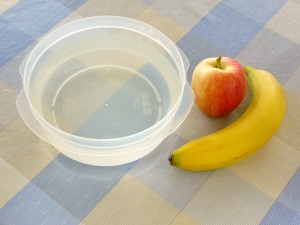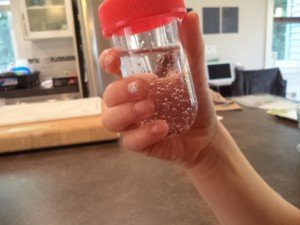How Kids Can Play with Science Toys and Materials
Is a science kit on your child’s wish list for toys? Sometimes, when children get a science kit they need support for how to play and enjoy this toy.
 Children are scientists by nature. They love to explore and their curiosity is boundless. They check to see what happens with practically anything. Babies will reach out and push, pull, shake, or drop an object over and over, checking out the result. Toddlers and preschoolers also like to discover how they can affect objects and even pets. They learn from the reaction. Not surprisingly, so do adults. How many of us watch Myth Busters to see the team’s often explosive experiments? Fortunately, children are intrigued by effects on a much less spectacular scale.
Children are scientists by nature. They love to explore and their curiosity is boundless. They check to see what happens with practically anything. Babies will reach out and push, pull, shake, or drop an object over and over, checking out the result. Toddlers and preschoolers also like to discover how they can affect objects and even pets. They learn from the reaction. Not surprisingly, so do adults. How many of us watch Myth Busters to see the team’s often explosive experiments? Fortunately, children are intrigued by effects on a much less spectacular scale.
 A science kit often contains a few plastic containers of different shapes and sizes, a good-size eye dropper, a magnifying glass, a magnet, and a large case to hold it all. There may be some basic ingredients, such as food coloring. You can make one of these for your child fairly easily instead of buying one. No matter what is in the science kit, you can take advantage of children’s curiosity and encourage their play.
A science kit often contains a few plastic containers of different shapes and sizes, a good-size eye dropper, a magnifying glass, a magnet, and a large case to hold it all. There may be some basic ingredients, such as food coloring. You can make one of these for your child fairly easily instead of buying one. No matter what is in the science kit, you can take advantage of children’s curiosity and encourage their play.
One way to do this is by asking kids what they think might happen before they start experimenting. This involves them in the process as a participant, instead of just a watcher. Once an activity is done, talk about what has happened and maybe some reasons why. There might be a way to extend the activity for more fun and learning.
 For instance, a simple science activity might be finding out if an apple will float or sink in water. First, what does your child think will happen. Next, put the apple in water to find out. What did it do? You can talk about the result and even try putting the apple in upside down or sideways. Then, your child might be able to try different fruits or veggies, like a banana, strawberry, grape, carrot, or potato.
For instance, a simple science activity might be finding out if an apple will float or sink in water. First, what does your child think will happen. Next, put the apple in water to find out. What did it do? You can talk about the result and even try putting the apple in upside down or sideways. Then, your child might be able to try different fruits or veggies, like a banana, strawberry, grape, carrot, or potato.
 Science play is also very sensory and providing opportunities for sensory play activities will help make important neural pathways and brain connections. By merely talking with a child, encouraging a guess or prediction first, and asking some questions, you are expanding play.
Science play is also very sensory and providing opportunities for sensory play activities will help make important neural pathways and brain connections. By merely talking with a child, encouraging a guess or prediction first, and asking some questions, you are expanding play.
In many ways, children already know how to play, and we can grow their play skills and abilities. We can encourage their natural curiosity and build on their play. This makes them more effective learners, or in a word–smarter–through play. Does your child enjoy science play?
